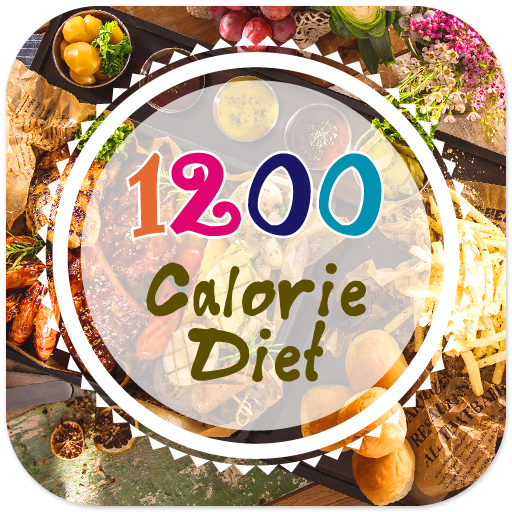
There are many reasons that you need to get rid of fat cells. In this article, we'll discuss what these reasons are and the signs of hematuria, kidney disease, and stones. We'll then examine the root cause of the phenomenon. Finally, we will discuss how to recognize hematuria in those who have it. If your urine becomes cloudy or contains white or yellow slime, it could be hematuria.
Dietary reasons for peeing out fat cells
You may be wondering what the dietary reasons are for peeing out fat cells. The process of excretion of fat cells occurs through the kidneys and urethra. These organs filter blood to eliminate waste from the body before it causes damage. Chemical reactions are involved in fat breakdown, which releases hydrogen, oxygen and carbon. The urine is the main conduit for water out of the body. This could indicate that the body needs more fluids.

Signs of kidney disease
It could be a sign that you have kidney disease. A damaged filtering mechanism can cause it. When this happens, your urine and blood may clump together causing a stroke. A urine test is the first thing you should do if there is protein in your urine. A nephrologist should be consulted if you suspect you have this condition.
Signs of kidney stones
You could have kidney stone if you find yourself peeing out fatty substances. Although kidney stones are often painful, the pain may not last. Early diagnosis is crucial, as treatment can help prevent the stones from becoming larger and causing more pain. A physician may order an intravenous pyelogram, which is a series of x-rays taken through a catheter after an injection of contrast dye into the urethra. The images are used to help doctors identify any obstructions or tumors as well as check the flow of blood to the kidney.
Signs of hematuria
Hematuria is a condition in which blood is found in the urine. Patients who experience this should consult a doctor. The condition is generally caused when there is leakage of red cell from the urine tract. This condition may indicate a medical issue that is not being diagnosed or treated. The condition may be easily detected with a urine test or a doctor's visit. Frequent urination can cause disruptions in a person's work, sleep, and hobbies. It can also affect a person's mental state.

Signs of cancer
The bladder, a hollow organ located in the lower stomach, is often a sign of cancer. The lamina propria, a type of tissue, is what makes up the lining. Cancerous cells could invade this lining. Muscle-invasive tumors are those that appear at T2 or higher. They have spread to the fat surrounding the bladder at T3 and higher. It can also spread to other areas of the body.
FAQ
How can busy people lose excess weight?
To lose weight, eat less and do more exercise.
Overeating will lead to weight gain. You will also gain weight if your exercise is not enough. If you combine these two simple behaviors, you can lose weight.
Is there any difference between intermittent fasting and calorie restriction?
Calorie restriction refers to eating less than what your body requires. Intermittentfasting is different as it doesn’t require you to restrict your calories. Intermittent fasting focuses more on eating fewer calories every day.
Intermittent fasting is more effective because it allows you to enjoy foods you love without feeling guilty.
Both methods have pros and cons. You have to decide which method you prefer.
Is it possible to eat fruits while intermittent fasting?
Fruits are great for your health. They contain vitamins, minerals, fiber and antioxidants. But, they can also contain sugar that can spike blood glucose levels. This can lead to insulin resistance and weight gain. If you are looking to lose weight through an IF diet you need to choose low glycemic-index fruits such as oranges, pears, berries and melons.
What is the best time to do Intermittent fasting in order to lose weight
The answer isn't as easy as it seems. For optimal fat loss, you need to take into account many factors. These are:
-
Your age. If you are younger than 40, intermittent fasting might be too difficult because you have less time for recovery after each fast. On the other hand, if you're older (over 60), you may find that you don't have enough energy to sustain an extended period of daily fasting.
-
Your current body composition. You'll be most successful if you have lots of muscle mass. You may find shorter fasting more beneficial if your muscle mass is low.
-
How physically active. If you exercise regularly, you may need to extend your fasting window to ensure that you still get adequate rest between workouts.
-
Your health history. Extra fasting may be necessary for people who have heart disease, diabetes, cancer, or other medical conditions.
-
How well do you tolerate stress? Stressful situations often make us eat less. To avoid this problem, you may need to increase the length of your fasting windows.
-
It is the type of diet you are following. Certain diets, like ketogenic diets, may require even longer fasting periods.
-
Your quality of sleep. The quality of your sleep is also a factor in increased appetite and decreased metabolism. It could take some experimentation to discover the best method for you.
-
Your daily intake of protein. Protein helps stabilize blood sugar levels, which means that eating more protein could potentially lead to lower insulin levels. This would allow you to fast for longer periods of time.
-
Individuals who are trying lose or gain weight will require longer fasting times than those who are trying.
-
How many calories did you consume during your fasting period? Fasting fewer calories per day may result in greater fat loss than fasting for more calories per day.
-
Your overall fitness level. Fasters who are very fit tend to have higher metabolic rates, which allows them to burn more calories throughout the day.
-
Your gender. Women tend to have a greater appetite than men, so they might need to fast for longer periods. Women tend to have smaller appetites so they might only need to fast for 20-30 minutes each morning.
-
Your lifestyle. Do you get enough physical activity? Do you do a lot of exercise each week? Does your job involve sitting at a desk all day long? These factors could affect how much you should fast.
-
How much do you spend per month on food? It doesn't always mean that you should spend a lot of money on groceries if you eat healthy foods. Whole grains can be substituted for white bread, whole fruits can be purchased instead of candy bars and lean meats over fatty cuts.
-
It is vital that you control your hunger. Fasting may not be necessary if you don't want skip meals.
Why would you want to lose weight before turning 40?
For people over 40, maintaining good health and fitness are essential. It is crucial to find ways that you can stay fit throughout your entire life. This means regular exercise, healthy eating habits, not smoking, moderate alcohol intake, and regular exercise.
It is important to recognize that our bodies change as we age. Our bones start to weaken, and our muscles start to shrink. We can slow down the aging process by taking care of ourselves.
As we age, there are many advantages to being healthy and fit. These include:
-
Better sleep
-
Better mood
-
Increased energy levels
-
Lower risk of cancer
-
A longer life
-
More independence
-
Better sex
-
Better memory
-
Improved concentration
-
Increased circulation
-
Stronger immune system
-
Fewer aches & pains
How often do people fast?
Most people who follow a ketogenic diet fast once per week. However, there are some who fast twice per week. Others fast three times a week.
The length of each fast varies too. Some fast for 24 hours while others fast for 48.
Some people even go longer than 72 hours. These extreme cases are rare.
Statistics
- According to a study sponsored by the American Council on Exercise, a person weighing around 140 pounds (64 kg) would burn 108 calories at a 30-minute beginner's Pilates class or 168 calories at an advanced class of the same duration (26). (healthline.com)
- A 12-week study in 20 women with obesity found that walking for 50–70 minutes 3 times per week reduced body fat and waist circumference by an average of 1.5% and 1.1 inches (2.8 cm), respectively (healthline.com)
- Among women, the increase in metabolic rate was nearly 4%, or 50 more calories per day (14Trusted Source (healthline.com)
- According to Harvard Health, it's estimated that a 155-pound (70-kg) person burns around 167 calories per 30 minutes of walking at a moderate pace of 4 mph (6.4 km/h) (5). (healthline.com)
External Links
How To
How to lose weight quickly
There are many quick ways to lose weight. But, many people find them ineffective and unsustainable. It is best to exercise and lose weight quickly through diet. Eat fewer calories daily than what you burn. This means eating fewer calories than what your body burns during normal activities. You must decrease your calorie intake if you want to lose weight quickly.
Avoid foods high in fat and sugar as they can increase your appetite. Make sure to drink lots of water every single day. It keeps you hydrated, and your metabolism at its best. When you combine these three things together, you'll see results faster than you ever thought possible!